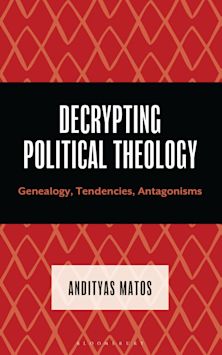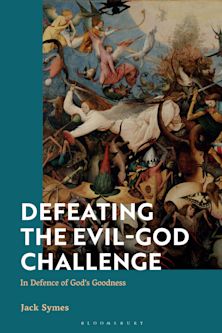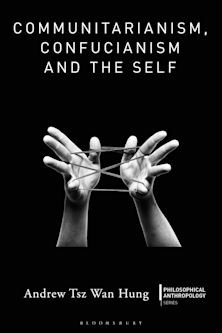- Home
- ACADEMIC
- Philosophy
- Philosophy of Religion
- Problems of Religious Luck
Problems of Religious Luck
Assessing the Limits of Reasonable Religious Disagreement
Problems of Religious Luck
Assessing the Limits of Reasonable Religious Disagreement
You must sign in to add this item to your wishlist. Please sign in or create an account
Description
To speak of being religious lucky certainly sounds odd. But then, so does “My faith holds value in God’s plan, while yours does not.” This book argues that these two concerns — with the concept of religious luck and with asymmetric or sharply differential ascriptions of religious value — are inextricably connected. It argues that religious luck attributions can profitably be studied from a number of directions, not just theological, but also social scientific and philosophical.
There is a strong tendency among adherents of different faith traditions to invoke asymmetric explanations of the religious value or salvific status of the home religion vis-à-vis all others. Attributions of good/bad religious luck and exclusivist dismissal of the significance of religious disagreement are the central phenomena that the book studies.
Part I lays out a taxonomy of kinds of religious luck, a taxonomy that draws upon but extends work on moral and epistemic luck. It asks: What is going on when persons, theologies, or purported revelations ascribe various kinds of religiously-relevant traits to insiders and outsiders of a faith tradition in sharply asymmetric fashion? “I am saved but you are lost”; “My religion is holy but yours is idolatrous”; “My faith tradition is true, and valued by God, but yours is false and valueless.”
Part II further develops the theory introduced in Part I, pushing forward both the descriptive/explanatory and normative sides of what the author terms his inductive risk account. Firstly, the concept of inductive risk is shown to contribute to the needed field of comparative fundamentalism by suggesting new psychological markers of fundamentalist orientation. The second side of what is termed an inductive risk account is concerned with the epistemology of religious belief, but more especially with an account of the limits of reasonable religious disagreement. Problems of inductively risky modes of belief-formation problematize claims to religion-specific knowledge. But the inductive risk account does not aim to set religion apart, or to challenge the reasonableness of religious belief tout court. Rather the burden of the argument is to challenge the reasonableness of attitudes of religious exclusivism, and to demotivate the “polemical apologetics” that exclusivists practice and hope to normalize.
Table of Contents
Religious Cognition and Philosophy of Luck
1 Types of Religious Luck: A Working Taxonomy
2 The New Problem of Religious Luck
Part II
Applications and Implications of Inductive Risk
3 Enemy in the Mirror: The Need for Comparative Fundamentalism
4 We Are All of the Common Herd: Montaigne and the Psychology of our ‘Importunate Presumptions’
5 Scaling the ‘Brick Wall’: Measuring and Censuring Strongly Fideistic Religious Orientation
6 The Pattern Stops Here? Counter-Inductive Thinking, Counter-Intuitive Ideas, and Cognitive Science of Religion
Product details
| Published | 07 Jul 2020 |
|---|---|
| Format | Ebook (Epub & Mobi) |
| Edition | 1st |
| Extent | 308 |
| ISBN | 9781498550185 |
| Imprint | Lexington Books |
| Illustrations | 2 BW Illustrations, 2 Tables |
| Publisher | Bloomsbury Publishing |
About the contributors
Reviews
-
Guy Axtell’s new book, as the title suggests, is an attempt to assess the limits of reasonable religious disagreement. In trying to delineate those limits Axtell thinks that it is useful to employ the notions of luck and risk in examining how reasonable a particular religious (or atheistic) stance is. A central concern of the book is with religious groups which exclude others in some way and which ascribe traits to those other groups that are very unlike the traits the group ascribes to themselves.... Problems of Religious Luck takes a fresh look at the kinds of problems raised by the contingency of people’s beliefs on their location (the time they live in, the place they live in, the family they grow up in, the groups they happen to be exposed to, and so on).... His book is intelligent, thought provoking, and it does valuable work in promoting a more open-minded and empathetic approach to religious disagreement.²6
Wittgenstein-Studien
-
In this book, Guy Axtell joins this important conversation about lucky belief, with an eye toward the religious case. He focuses on the epistemic justification of religious belief: the "de jure question" (p. 6). Axtell's main target is religious exclusivism -- a doctrinal or soteriological uniqueness that sets a particular religion apart from other religions. . . . Overall, the contingency of belief is a fascinating issue that deserves serious consideration. I'm hopeful that Axtell's book draws more attention to the intriguing problems raised by religious luck.
Notre Dame Philosophical Reviews
-
A thought-provoking, historically-informed, and highly distinctive take on the important questions raised by religious luck, this is a welcome addition to the literature.
Duncan Pritchard, University of Edinburgh



































